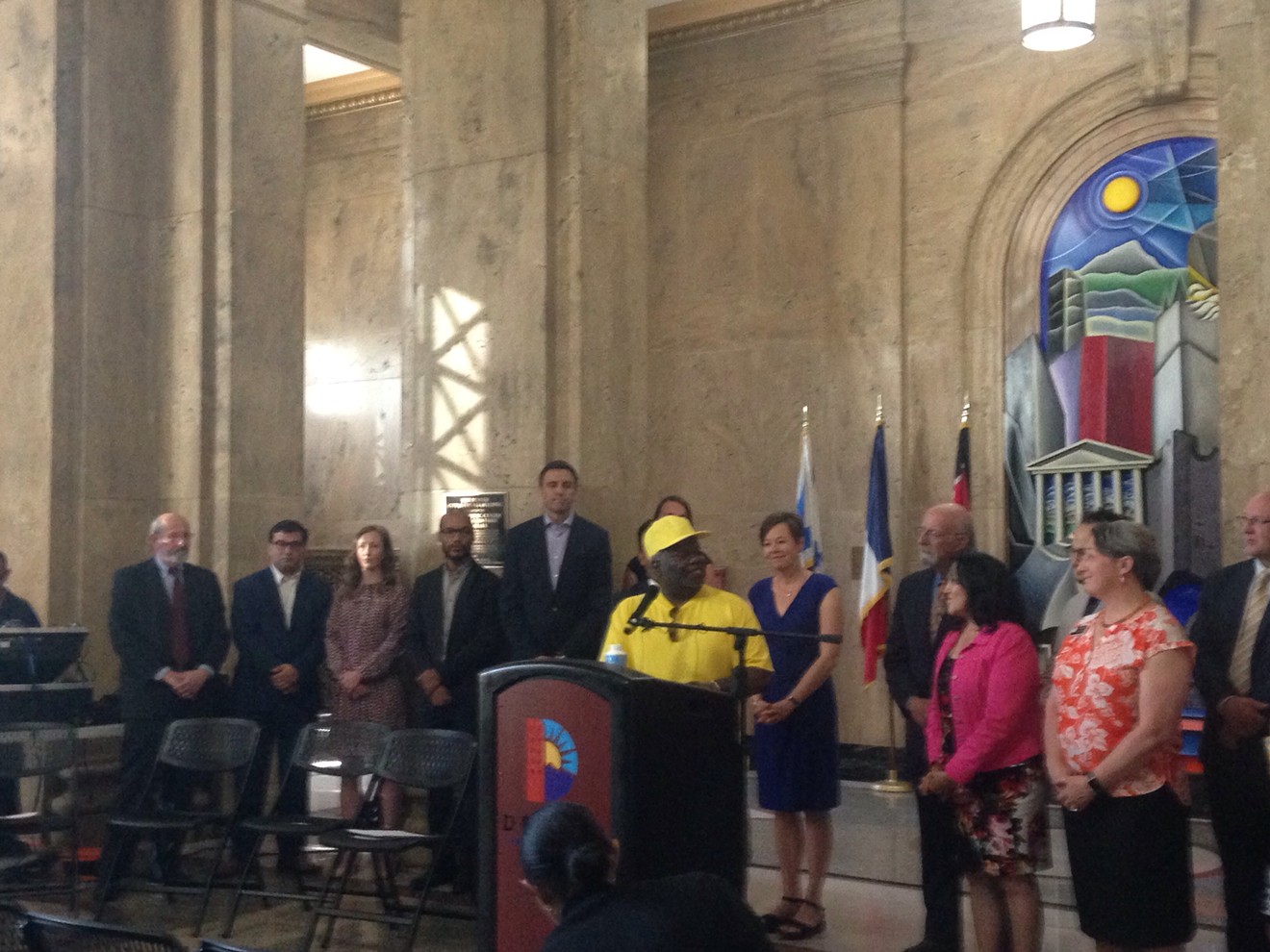Today, June 13, Denver City Council announced a pilot program designed to prevent homelessness by providing low-income renters facing eviction free legal assistance. Colorado Legal Services will administer the program, which is funded through a combination of grants and contributions from the budgets of all thirteen city council members' offices.
With rent prices spiking, Denver is in the midst of an “eviction crisis,” according to Jack Regenbogen, an attorney with the Colorado Center on Law and Policy. Just last year, more than 8,000 eviction cases were filed in Denver, most of which resulted in an eviction. A key component of the crisis is a staggering discrepancy in legal representation that leaves tenants vulnerable to eviction even when they might have valid legal claims.
Regenbogen and Aubrey Hasvold of the Colorado Coalition for the Homeless conducted a study of Denver eviction cases between 2014 and 2016 that revealed that landlords hired lawyers in 89 percent of eviction cases, whereas tenants only had them in 1 percent of cases. According to Regenbogen, the majority of evictions were ordered because of the tenant’s inability to pay rent (as opposed to lease violations), and in some cases for only a few dollars of unpaid rent. The study also found that evictions disproportionately affect people of color, often living in rapidly gentrifying areas. These individuals and families are more likely to face unemployment, disruption in their education and food insecurity. The Colorado Coalition for the Homeless study showed that in cases where tenants had representation, they almost always prevailed in getting the eviction overturned.
In light of growing attention to these reports, housing activists have increasingly turned to protesting eviction practices and highlighting rent increases as a result of gentrification as one of the causes of homelessness.
“We must reduce the number of Denverites with no place to call home,” said Jonathan Asher, executive director of Colorado Legal Services, at a press conference announcing the program. “By making it easier for more Denver residents to get the legal help they need when facing eviction, the city council has chosen to level the playing field for low-income renters...ensuring that outcomes are not determined by how much money people have, but the merits of their cases.”
Colorado Legal Services has long been able to provide legal services to residents of public and subsidized housing, which, according to Asher, has been effective in helping those residents ensure stable living situations. “Just last week, CLS helped a Denver woman with a disability facing eviction get more time to move,” he said. “Those additional ninety days to move could make the difference between her finding an affordable home and living on the street.”
Now, CLS will be able to extend its services to private-housing tenants whose income puts them under 200 percent of the federal poverty line. Clients will be assisted by a housing attorney and paralegal that CLS hired specifically for the program, with help from pro bono attorneys.
The program is a time-limited pilot, however. At-Large City Councilwoman Robin Kniech said at the press conference that the current funds will allow the program to continue for six to nine months, during which time the program managers will monitor funds to see how much will need to be allocated in order to continue the program permanently.
Residents can apply for legal counsel during CLS’s open hours, 8 a.m. to 12 p.m. Monday through Friday, in room 483 of the Denver County Courthouse. Find more information on the CLS website.
[
{
"name": "Air - MediumRectangle - Inline Content - Mobile Display Size",
"component": "12017618",
"insertPoint": "2",
"requiredCountToDisplay": "2"
},{
"name": "Editor Picks",
"component": "17242653",
"insertPoint": "4",
"requiredCountToDisplay": "1"
},{
"name": "Inline Links",
"component": "18838239",
"insertPoint": "8th",
"startingPoint": 8,
"requiredCountToDisplay": "7",
"maxInsertions": 25
},{
"name": "Air - MediumRectangle - Combo - Inline Content",
"component": "17261320",
"insertPoint": "8th",
"startingPoint": 8,
"requiredCountToDisplay": "7",
"maxInsertions": 25
},{
"name": "Inline Links",
"component": "18838239",
"insertPoint": "8th",
"startingPoint": 12,
"requiredCountToDisplay": "11",
"maxInsertions": 25
},{
"name": "Air - Leaderboard Tower - Combo - Inline Content",
"component": "17261321",
"insertPoint": "8th",
"startingPoint": 12,
"requiredCountToDisplay": "11",
"maxInsertions": 25
}
]












